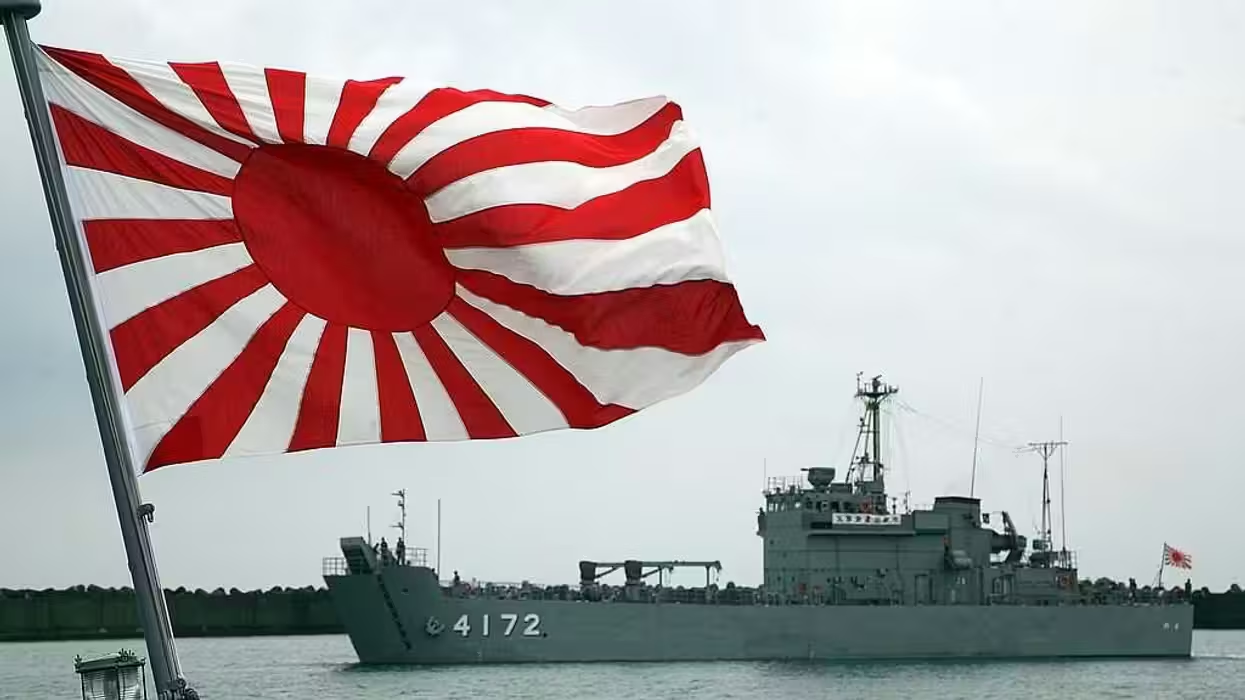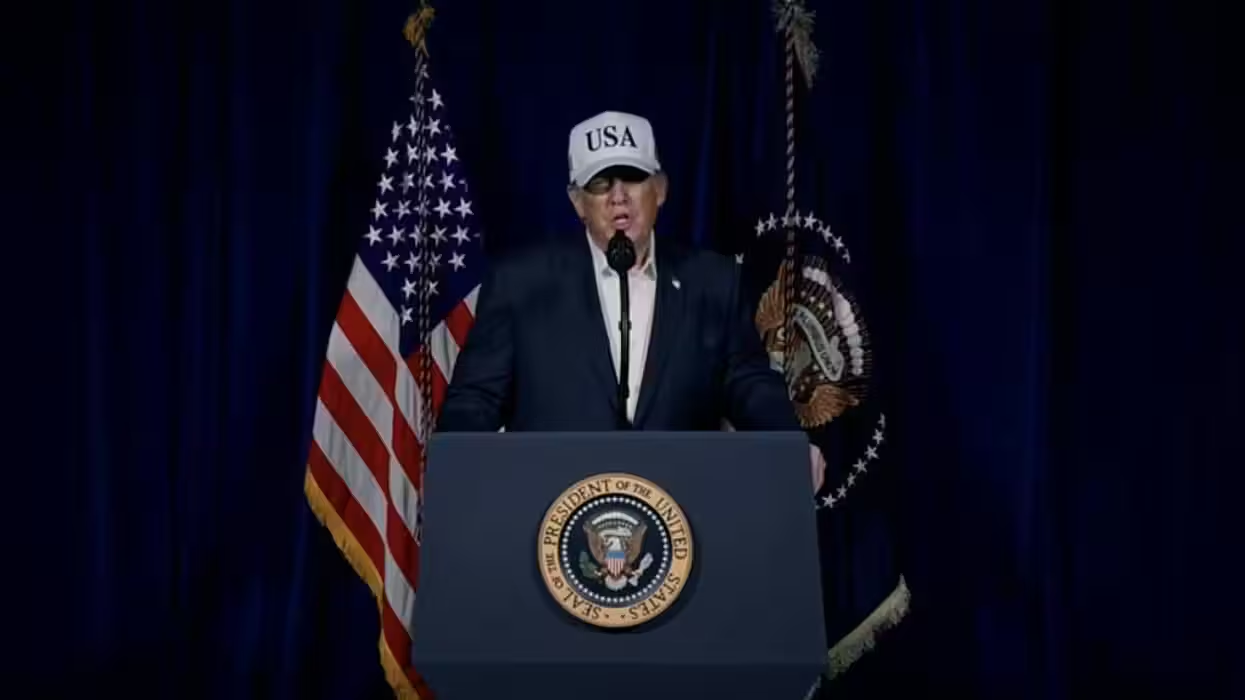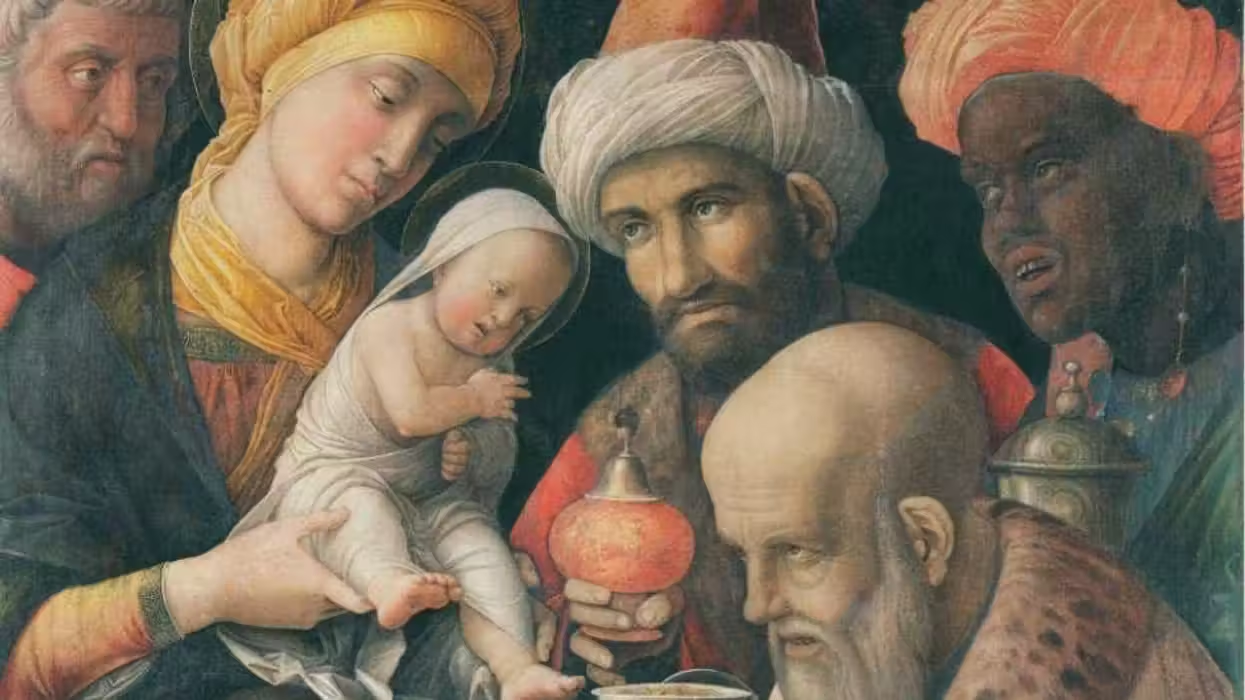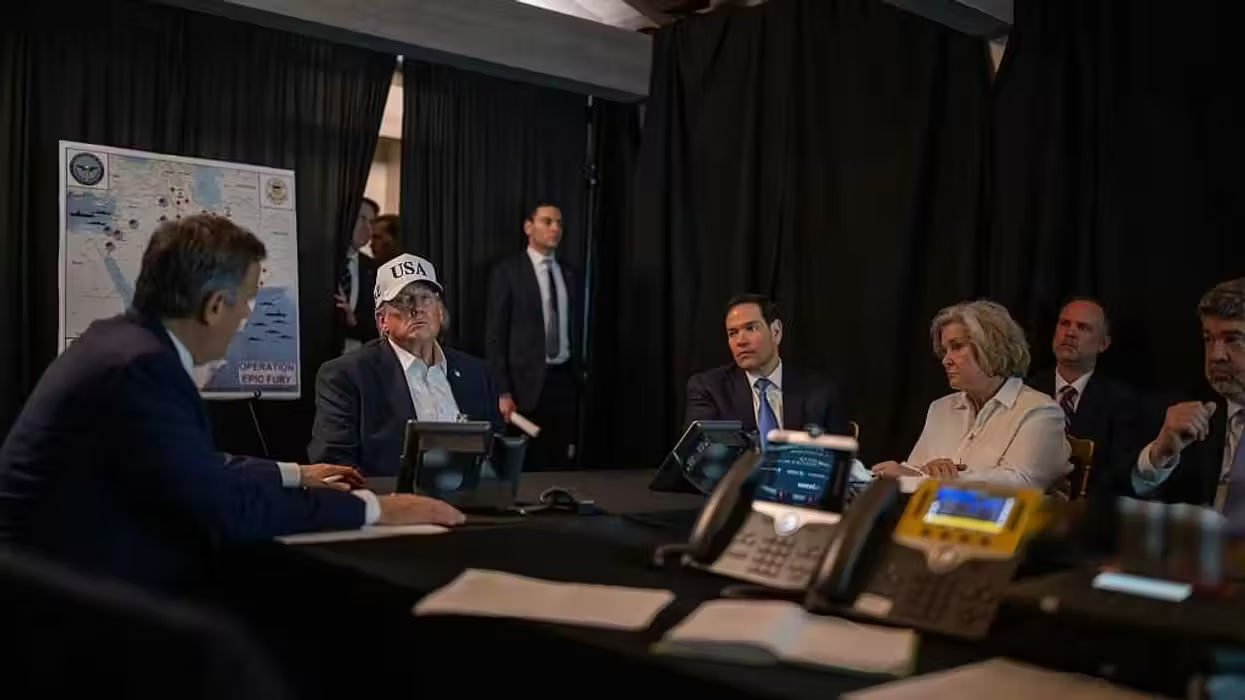The Iran nuclear deal, signed on the 27th day of Ramadan, the holiest day of the Islamic holy month -- and a nuance not lost on the Iranian president -- will be seen as a slap in the face and betrayal by long term U.S.-Arab allies in the region.
It will also be seen by Middle East western secular groups struggling against the Islamization of their world as further appeasement to yet another Islamic political force in the region. The Iran nuclear deal will complicate an already very complicated and complex situation in the Middle East.
 Iranian opposition supporters stage a demonstration displaying a fake nuclear missile, ahead of ongoing nuclear talks between EU foreign ministers and Iran, in front of the European institutions, in Brussels, on March 16, 2015. AFP PHOTO / Emmanuel Dunand
Iranian opposition supporters stage a demonstration displaying a fake nuclear missile, ahead of ongoing nuclear talks between EU foreign ministers and Iran, in front of the European institutions, in Brussels, on March 16, 2015. AFP PHOTO / Emmanuel Dunand
It will be seen as further western U.S.-lead Machiavellian meddling in the delicate balance of power that has been in place in the region for at least 1,400 years. More catastrophically, it will be seen by long term allies, such as Saudi Arabia and the rest of the Gulf States, as a total and clear betrayal dragging U.S. credibility down to historical lows.
Whether the deal prevents the Islamic Republic of Iran from acquiring nuclear weapons in the near to medium future remains to be seen. I, for one, believe that it will most likely prevent Iran from acquiring nuclear weapons for the medium term, but that it will not derail an Islamic Shiite Iran form pursuing nuclear capabilities over the longer term. While preventing Iran from acquiring nuclear weapons over the next 10 to 15 years, this deal's immediate consequences will accelerate the conventional conflicts taking place right now within the Sunni-Shiite divide throughout the region.
What we can see right now is the Islamic Republic of Iran's regional ambitions and reach in Lebanon, Syria, and Yemen. This deal will do nothing to curb Iran's ambitions in the region; on the contrary, it will enable Iran to widen and accelerate its adventurism abroad with greater ease as a result of the billions of dollars to which it will now have access.
In addition to the obvious military implications of Iran having more funds to procure and export military hardware and fund its proxies in the region, more dangerously it will now have an enhanced ability to expand its unofficial welfare handouts to minority Shiite communities in southern Lebanon, the Latakia province in Syria, and in Iraq and Yemen, and perhaps even clandestinely to the poor and neglected areas of Bahrain and Saudi Arabia's eastern province.
In addition to enhancing Iran's ability to extend financial and military aid to Shiite minorities in the region, this deal will also immensely enhance Iran's image with its followers, further undermining any hope for building modern national identity in Lebanon, Iraq, Syria, and Yemen and therefore effectively weakening these countries central governments.
The net result will be endearing many Shiite generations to come -- in the Sunni heart of the Middle East -- to Iran and its leadership, thus fuelling the historical mistrust in the Sunni-Shiite conflict.
On the other side of the political spectrum, secular democratic groups in Egypt and Tunisia, still reeling from the United States' support of the Muslim Brotherhood -- another radical political Islamic organisation -- are dismayed at the deal with Iran which will do nothing but strengthen and embolden yet another political Islamic movement in the region. This all comes at a time when both countries are continuing to struggle with serious terrorist threats on their soil.
It seems the United States is running in circles around itself. Towards the end of March of this year, the Obama administration announced that it would resume suspended military aid to Egypt for the first time since 2013, following the Egyptian military's successful deposition of the Muslim Brotherhood's short-lived regime.
Ironically, during Mohamad Morsi's presidential term, the U.S. was largely seen as egregiously supportive of the Islamic group's hold on power -- effectively hindering the progress of any progressive Egyptian government. But now the U.S. is not only supporting -- yet again -- but effectively aiding yet another Islamic state in Iran. A state that both knowingly and unapologetically arms and perpetuates religious sectarian violence and insurgencies across the region, once again turning the tables on true democratic progress in the Middle East in favor of strengthening the hand of political Islam -- be it this time on the side of the Shiite.
The Iran nuclear deal will delay but not curtail Iran's long-term pursuit of nuclear weapons. It will raise tension and increase the pace of the Sunni-Shiite conflict fuelled by billions of dollars that will now be available to Iran following the historic agreement.
It immensely enhances the image of Iran amongst its Shiite followers in Sunni countries, thus further undermining these countries' central governments.
It will cost the United States the loss of trust and instil a sense of betrayal with our long time allies both in the Sunni world as well as with the more democratic secular forces in the region attempting to build progressive governments in the face of radical political Islam.
–
TheBlaze contributor channel supports an open discourse on a range of views. The opinions expressed in this channel are solely those of each individual author.


 Iranian opposition supporters stage a demonstration displaying a fake nuclear missile, ahead of ongoing nuclear talks between EU foreign ministers and Iran, in front of the European institutions, in Brussels, on March 16, 2015. AFP PHOTO / Emmanuel Dunand
Iranian opposition supporters stage a demonstration displaying a fake nuclear missile, ahead of ongoing nuclear talks between EU foreign ministers and Iran, in front of the European institutions, in Brussels, on March 16, 2015. AFP PHOTO / Emmanuel Dunand






